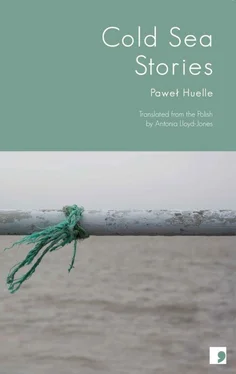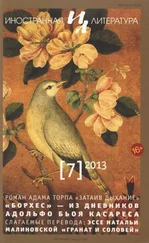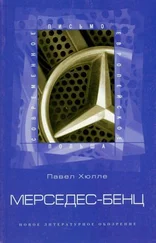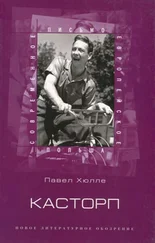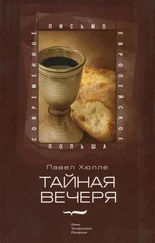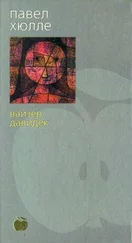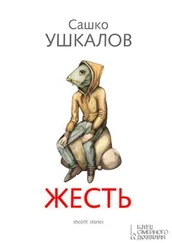‘I’m paying him back now,’ said Marta about Andrzej. ‘We haven’t seen each other since Mother died. Do you correspond?’
Joachim said no. Zdzisław, the son-in-law, entered the kitchen. In a conciliatory way he set a decanter full of fruit liqueur and two glasses on the table.
‘Don’t be angry,’ he said, pouring a glass for himself and Joachim. ‘If I’d known you ordered the piano tuner, I’d even have paid him myself. But the man was standing in the doorway, I’d just dropped in from the workshop for a moment, and I thought he was some sort of conman, a Jehovah’s witness or something. So what happened, happened. But I’ve ordered him for tomorrow. At my expense.’
‘Well I never, sir!’ Somehow Joachim couldn’t get onto first-name terms with Marta’s son-in-law. ‘Why not pour a drink for your mother-in-law? Marta, will you have a drop with us?’
Without a word, Zdzisław fetched a third glass from the sideboard.
The cherry brandy was weak and too sweet.
When Joachim made a move to go up to his room, Marta grabbed him by the wrist.
‘Just tell me one thing. Why did you stop playing? Actually, why did you never start? I mean the stage, your career – well, why?’
‘Why do you ask?’
‘You were the only one of us who could have achieved something. Teachers, lessons. Just you. You went away, and nothing came of it! Nothing!’
‘Well, quite,’ said Joachim, kissing Marta on the cheek. ‘Nothing worked out for me either. But is that such a big sin?’
As he lay in bed, he thought about the nightmare Christmas Eve from a few days ago. The television switched on, the teenagers bickering, Marta forever on the go, and finally the piano that hadn’t been tuned for years, at which he had pointedly sat down and furiously played a carol that sounded dreadful.
Now he regretted it, like a schoolboy prank. But soon he was dreaming. Large snowflakes fell silently on the ash tree, under which his mother was arranging some gift boxes. Above the large, old tree a star was twinkling. The Pole star, not the Star of Bethlehem.
IV
The piano tuner rang to say he was ill and could only come in a week at the soonest. Zdzisław tried to find another one, but with no result. Joachim was not in the least upset. Every day, taking advantage of the frosty, sunny weather, he went out skating. He toured ever more distant corners of the lake. In some places the new estates and housing districts came right down to the shore, wound around the bays and occupied the hills. He often passed speeding ice yachts, or nearer the buildings, boys playing hockey. One day, a single skater separated himself from one of these groups and, to Joachim’s amazement, started to keep him company. It was a very strange impression: the man was skating in parallel to him at a distance of about thirty metres, copying his every movement like in a mirror. When Joachim stopped abruptly, so did that fellow, and he slowed down in just the same way. When Joachim turned a figure of eight, that man turned one too. When he skated on just his left foot for a while, holding his right leg up like a crane, that fellow did the same.
‘I haven’t gone mad, have I?’ wondered Joachim, glancing into the bright blue sky (the man glanced skywards too). ‘He’s not my lookalike!’ Indeed, he didn’t look like Joachim at all; he was smaller, with a slight build, and he was dressed differently too. From afar he seemed to be wearing rather theatrical, old-fashioned clothes. But it was impossible to get any nearer: whenever Joachim moved towards him, the fellow immediately moved exactly the same distance away. When he did a low, rather clownish bow, the fellow bowed back in an identical manner.
‘Once I press him to the shore,’ the simple idea dawned on him, ‘he’ll have to go past me. Unless he flies off straight onto dry land. But then I’ll catch up with him…’
First he sped off towards Likusy, then he made an abrupt about-turn in the direction of the Old Manor, and finally built up incredible speed as he headed straight for the Podlesie shore. And it happened; with no space to escape into, right by the shore the stranger did in fact turn round and glide straight towards him. But it was an unnaturally rapid manoeuvre, devilish quick somehow; at the last second Joachim dodged, but not soon enough to slow down, so he crashed headlong into the shore, luckily landing in a deep snowdrift.
He even found the situation amusing.
Could I really have encountered the devil? Things like that only happen in stories, especially nineteenth-century, and best of all, Russian ones, he thought as he wiped his face, pleasantly cooled by the snow.
He had seen that figure somewhere before: in a black frock coat, with the white splash of a cravat, in a fanciful hat, and with those funny skates, which were strapped on to some flat-soled boots. But where and when?
The whole way home he kept looking behind him, but the stranger had vanished. As he was climbing the rise to the estate, he turned to look at the lake again, and then he caught sight of the fellow, standing on the ice a few dozen metres from the shore, bowing and politely tipping his hat.
‘I haven’t gone mad, have I?’ Joachim said to himself several times over, as he walked down Jesionowa Street. ‘Someone’s having a joke at my expense. Must be some local oddball. There always were plenty of oddballs around here.’
That evening Marta gave in to some painful memories. One single word was like a concentrate containing the ultimate cause of all their family disasters and failures: Wadąg. That was the name of their father’s favourite lake, where he had his own boat, where once – probably in 1966 – he caught a fifteen-kilo catfish, and where, in a small, wooden cottage on a headland, lived the pastor’s wife, widow of the Reverend Eberhard Jellinek.
‘What did he see in her?’ said Marta, pouting with contempt. ‘That Evangelical old witch! That hussy! That Protestant whore!’
Joachim tried to calm her down. Why get upset, why curse, when none of them were alive any more? What could it matter nowadays?
‘Maybe you don’t remember how much Mother suffered!’ – Marta was not inclined to forgive the pastor’s widow – ‘And how embarrassing it was when he died there, at her place, in that house, in their marital bed, apparently!’
Joachim had forgotten that detail. Whereas the sight of his father, always cheerful – as he drove up to the house on his powerful Zundapp motorbike after a night or two at Wadąg, as he walked across the yard with a net full of handsome pike and zander, still flapping – that sight brought back pleasant memories.
‘Well of course,’ said Marta, refusing to give up, ‘you men always prefer to remember nothing but the pleasant things. Hush it all up and sweep it under the carpet!’
Despite their difference of opinion, somehow their conversation was affectionate. Marta admitted that they had cut down the big ash tree illegally; it was well over a hundred years old. Marian, her husband, had started building the workshop adjoining the house.
‘There was no alternative,’ she said, suddenly downcast, ‘but you know, once it was gone, once they had taken away the chopped-up trunk and the branches, I felt it was a bad omen. And that came true. Marian never finished the building. Only our son-in-law, years later. And it’s not so great now either, there’s too much competition.’ Marta drank a sip of tea from a chipped cup with a gold stripe. ‘They’re all lowering their prices, as if they were deliberately conspiring against us.’
Joachim spent half the night sitting over his laptop, online. He searched for all sorts of different things, from images of the devil, through to the history of skating. But in vain. Only when he remembered a visit to the Scottish National Gallery in Edinburgh, where he and Julia had once been, did it finally dawn on him. And how simple it proved to be! Sir Henry Raeburn’s painting of ‘The Reverend Robert Walker Skating on Duddingston Loch’, that ironical image of the skating minister, was exactly what he was looking for. The same black stockings, the same jaunty hat, cravat, flat-soled boots and strapped-on skates. But after a brief moment of satisfaction, he suddenly felt troubled: was it really possible, in this remote corner of the world, on Lake Ukiel, for someone to have come up with such an insane and yet sophisticated idea? To make himself look like the Reverend Robert Walker he must have obtained the right costume, the boots and the old-fashioned skates. And why was he following Joachim, of all people? Perhaps, he rationalised, this oddball had simply headed onto the lake and picked out the first skater he met to play all those mirror-image tricks on him. And if so, Joachim decided, he really must catch up with the joker and have a chat with him: how had he come up with this idea? Did he only know the image of the skating Reverend Walker from a reproduction? In spite of these probable, if eccentric theories, or rather attempts at an explanation, Joachim felt rising anxiety. No, it wasn’t normal. To meet someone on the ice at his home lake who made himself look like a figure from a little known Scottish painting was something bordering on mental aberration.
Читать дальше
